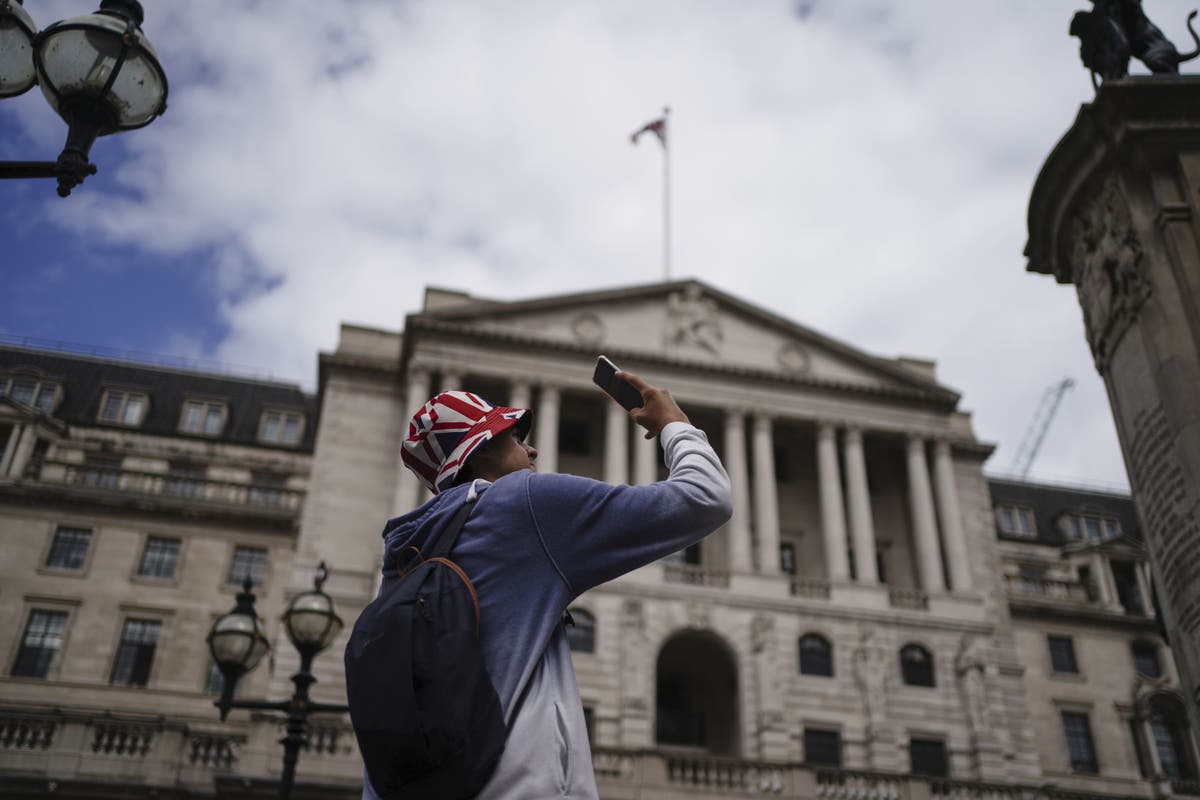UK borrowing costs are set to be cut for the second time this year, despite tax changes.
Most economists think policymakers at the Bank of England will opt to reduce interest rates to 4.75% today.
Rates currently sit at 5% after being cut by 0.25 percentage points in August, the first reduction since 2020, then kept the same in September.
Since then, the latest official data showed UK Consumer Prices Index (CPI) inflation fell to 1.7% in September, the lowest level since April 2021.
The slowdown, from 2.2% in August, was driven by a sharp slump in petrol prices and lower airfares.
Bank of England expected to cut interest rates today
Interest rates are widely expected to be cut today, with most experts predicting a drop from 5 per cent to 4.75 per cent. The Bank of England decision will announced at midday UK time.
The change will make the cost of borrowing cheaper in the UK, but also lessens returns on savings.
Interest rates are a key tool that the Bank uses to control the level of inflation. After the drop from 5.25 per cent to 5 per cent in August, inflation also dropped unexpectedly.
In September, the inflation rate (CPI) reached 1.7 per cent, dropping below the Bank’s 2 per cent target in S for the first time in more than three years.
This is understood to be a driving factor behind today’s decision. However, tax changes announced at Labour’s Budget in October and Donald Trump’s victory in the US have caused some market uncertainty.
Albert Toth7 November 2024 08:40
Inflation fell below the Bank of England’s 2 per cent target in September for the first time in three years
Experts said inflation falling below the Bank’s 2 per cent target level will encourage policymakers to continue easing interest rates, releasing some more pressure on borrowers and mortgage holders across the UK.
Andrew Goodwin, chief UK economist for Oxford Economics, said the outcome of the Bank’s Monetary Policy Committee (MPC) meeting “looks virtually certain”, although some members could still opt for rates to be kept the same.
MPC members Huw Pill and Megan Greene are the most “unpredictable”, he said, with lingering concerns over services sector inflation and wage growth.
The Monetary Policy Committee meets in the week after Chancellor Rachel Reeves announced almost £70 billion of extra annual spending, funded by business-focused tax hikes and additional borrowing.
The Office for Budget Responsibility (OBR) said the sharp increase in spending will contribute to higher inflation, although it will also help drive stronger economic growth.
Inflation is forecast to average 2.5 per cent this year and 2.6 per cent next year before coming down, assuming “the Bank of England responds” to help bring it to the target rate, the OBR said.
Barney Davis6 November 2024 22:14
Economists are rolling back predictions for a rapid succession of rate cuts over the next year
James Smith, developed market economist for ING, said: “The Budget won’t change the Bank’s decision to cut rates again this week.
“But it does question our long-held view that rate cuts will speed up from now on.
“The risk is that this happens later, and the Bank decides to keep rates on hold again in December.
“A cut at the final meeting of the year looks fairly 50:50, and a lot will depend on the two inflation reports we get between now and Christmas.”
Barney Davis6 November 2024 22:12





)